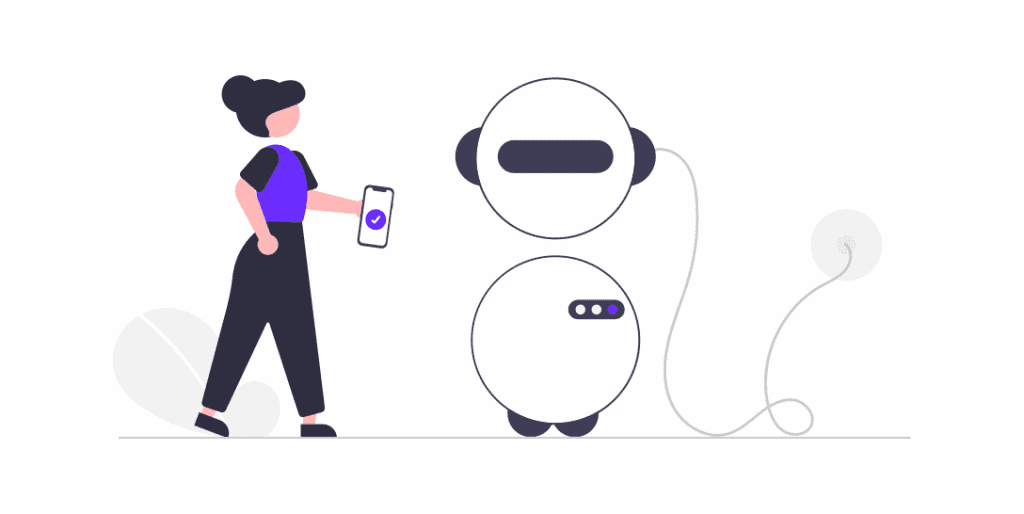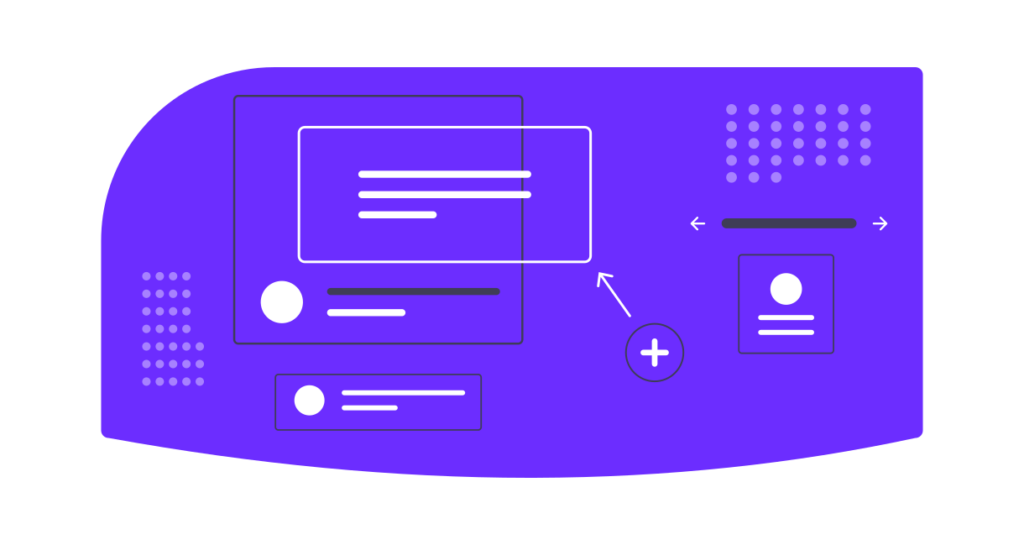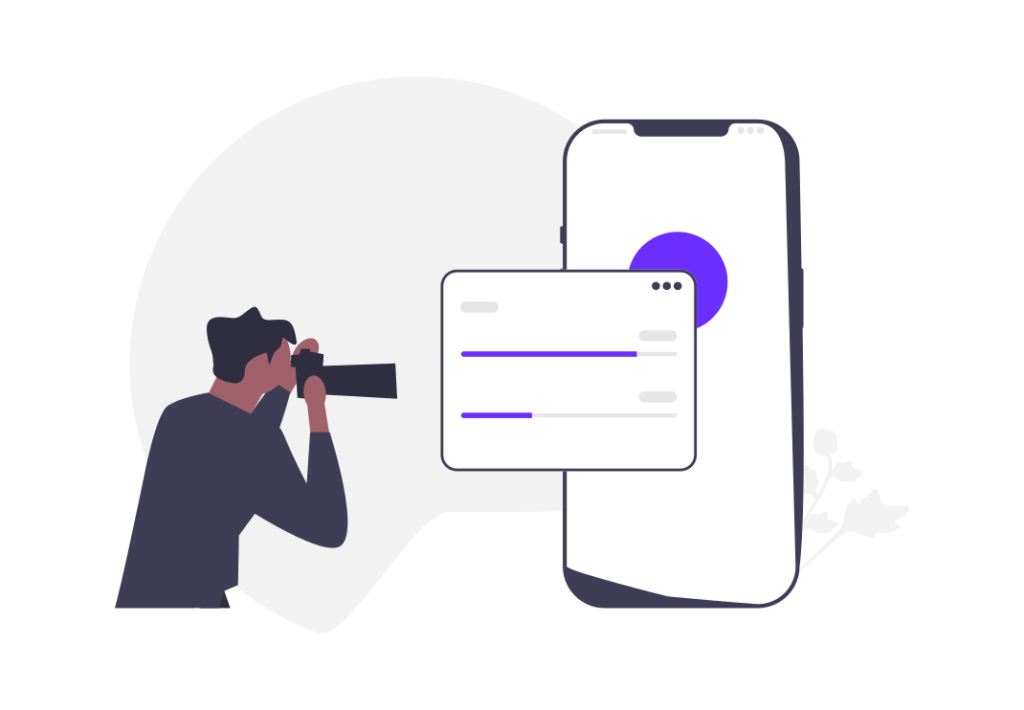Artificial intelligence (AI) technology solutions have a two-pronged effect on your business. It assures operational efficiency and improved customer experience.
AI marketing automation allows you to effortlessly gather comprehensive insights into your customers. So it can be a very powerful ally in your marketing game.
In this post, I will show you how to leverage AI marketing automation and the best tools you can use to grow your business faster.
Let’s dive in!
*Disclosure: I only recommend products I would use myself, and all opinions expressed here are my own. This post may contain affiliate links that at no additional cost to you, I may earn a small commission.
What is AI Marketing Automation?
Various factors impact the marketing efforts of your business. AI-powered marketing technology uses automated decision-making based on data collection, analysis, and other observations about your audiences. They also detect spending trends to help speed up your marketing efforts.
Data and customer profiles serve the AI marketing platforms, showing them how to effectively communicate with customers with tailored messages through multifunctional campaigns across your preferred channels. This is done automatically.
How does marketing automation work?
As you collect customer data from various social media interactions, website visits, app usage, and emails, the marketing automation accurately collects it. It streamlines the segmentation and the targeting processes to determine the right audiences quickly. Each profile can send any number of customers relevant, personalized automated messages on their preferred channel.
How AI Marketing Automation Benefits Your Business?
- You can target your old and potential new customers with automated messages across their social media, email, web, and text platforms.
- Dashboards offer a comprehensive view, allowing you to keep pace with all your data for each campaign. This will enable you to replicate or re-allocate budgets accordingly.
- Workflows are the instructions used to send messages. Your workflow options include custom-built ones or templates. Modifications are easy to make during campaigns ensuring better results.
- Marketing automation helps to coordinate marketing and sales departments for effective online campaigns, helping to increase revenues.
- Lead generation, nurturing and scoring increase with real-time personalization. This can effectively be done throughout the consumer lifecycle and allows the re-engagement of risk customers.
- Increased ROI is assured since AI platforms decide how best to allocate funds across social media for effective campaign placements.
- Marketing automation takes care of repetitive tasks, freeing employees to tackle other challenges.
- AI reduces human error.
- Expect increased savings on cost and time as your business grows.
- The best AI marketing automation systems are designed to grow with your business.
Marketing Automation Improves the Customer Journey.

Customer journeys are essential if you want to convert them into brand advocates. AI marketing allows unified interactions through every touchpoint with your business, making the customer journey a pleasure.
Each user receives messaging and relevant content across many channels. Personalized email messaging offers far more than just the customer’s name in the subject line. AI automation generates digital ads that recommend products to individual users at the right time along each step of their lifestyle journey.
Best Practices for AI Marketing Automation
AI marketing is a significant investment for your business, and you need a plan to leverage it into your marketing campaigns and operations correctly. The following factors can help get the maximum value from your investment in the shortest possible time:
Define your goals and identify which areas AI can improve. Key performance indicators (KPIs) are the quantifiable goals that offer you a clear picture of your AI marketing campaign’s success.
Data usage has strict privacy standards helping you build customer trust while maintaining compliance. From the outset, you must know the boundaries between personalization and acceptable data usage. Establish privacy standards and set them into all platforms, ensuring you remain compliant and earn customer trust.
Ensure you have the data required before getting started because AI tools require a considerable amount of it for their training. A successful AI campaign needs to know your customer preferences and other external trends that affect shopping decisions. These also include information about the weather, location, and other external data.
Your business CRM should have valuable customer data from previous marketing campaigns and your website. Second-party data can be accessed with permission from companies with first-party data to expand your campaigns’ reach. Past behavior, also known as third-party data, is an option but not always as reliable. Always look for quality data and that doesn’t breach data regulations.
Depending on how sophisticated the AI marketing system is, you may need help. Some systems are easy to use; others are more complex. Not all businesses can employ people who understand data science or have AI expertise. However, this is an important area of AI marketing for enterprises who need to wade through a vast amount of data and understand its insights.
Depending on your business’s size, third-party organizations can help you get your program off the ground by collecting and analyzing the data. Many can also train the AI for you and help with ongoing maintenance.
As you prepare to implement your AI marketing automation, you must establish a process that delivers data cleansing and maintenance. This assures the effectiveness of your marketing program.
Data needs to be complete, consistent, relevant, accurate, representative, transparent, and timely.
- Before you begin, get all your teams to collaborate, so all output is relevant.
- Create visualizations of the marketing automation workflow to help everyone clearly understand your objectives.
- Know which customers you are going to engage and why.
- Prepare your database segmentation.
- Content strategy must be planned and designed. Ensure your content library has relevant, engaging, and interesting content available that will reach customers at all stages of their lifecycle.
The most successful companies roll out their AI marketing automation in stages, and you should follow their example. Testing and analyzing as you go brings in the best results. This allows you to make changes and roll out new blocks. Automated marketing frees you some time to concentrate on the study of your analytics.
User Examples of AI-Powered Marketing.
The advantages of using machine learning are beneficial to many industries, including healthcare, government, financial services, retail, entertainment, etc. Marketing teams and their efforts benefit significantly from using AI marketing tools.
This is how AI offers greater marketing efficiency, enhanced customer experience, and improved campaign performances:
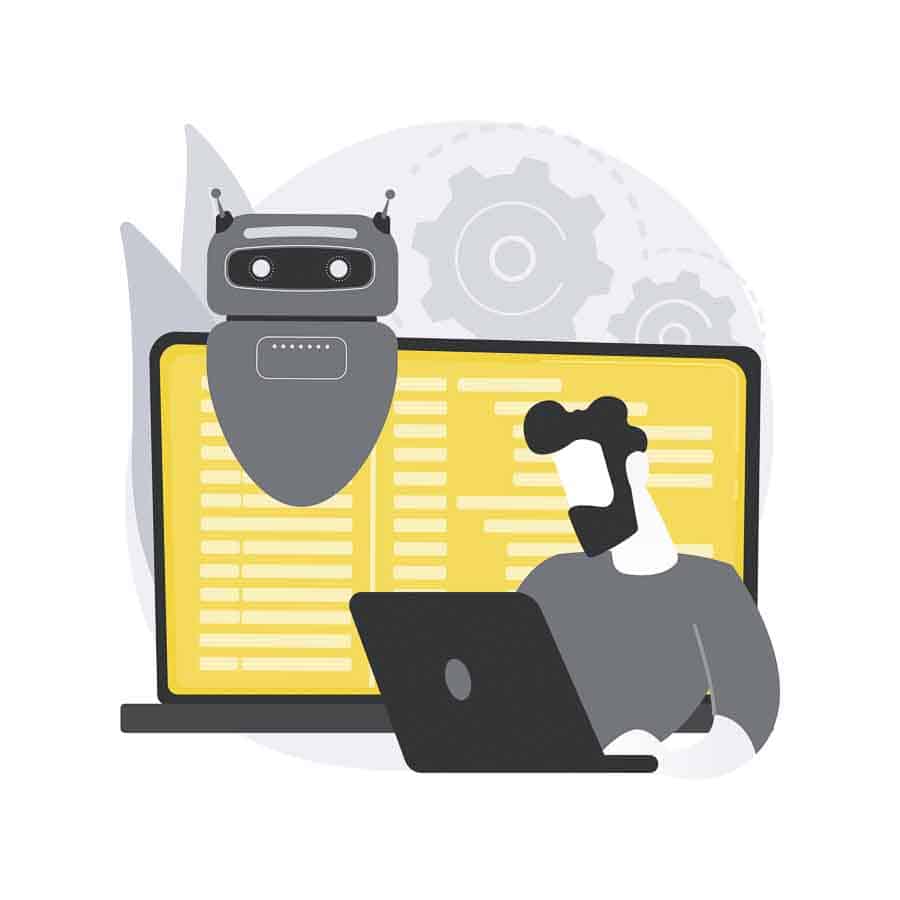
Marketing teams need to make informed decisions when posting advertisements and messages, and collecting and studying data manually is a time-consuming effort. With the help of AI marketing tools, the whole process becomes more flexible.
Marketing automation tools use information in real-time to bid on advertising spaces on the proper channels. According to the available data about their interests, these target relevant audiences, purchase history, location, intent, and more.
Marketing automation software, in combination with machine learning, uses consumer responses to create complete user profiles. Understanding the preferences of each customer allows marketing teams to customize messages according to each user’s preferences.
One good example of how algorithms are used to customize the user experience is Netflix. This type of data improves the customer experience and increases conversion rates because the data analyzed considers various factors about customer preferences.
Classical marketing gives standard demographic data, whereas AI marketing platforms allow companies to understand consumer preferences on a personal level. AI marketing platforms draw data from the user’s purchase history, interests, location, previous interactions with a brand, etc., to offer the user a unique customer experience.
Spotify is an excellent example of how this type of granular personalization is used. The data allows them to offer customized playlists for their users and create genre playlists.
Atomic content is another example of AI-enabled personalization. Data about customer preferences is used to create customized emails with relevant articles, videos, or images.
Chatbots are used almost in every industry now. They are an excellent example of how AI can be used to cover customer service agents’ tasks.
Natural language processing through AI allows chatbots to respond to basic queries with instant, accurate answers. Chatbots are programmed to leverage historical data and past questions, and only complicated requests are referred to human customer service agents.
AI marketing tools help marketing teams understand insights from all the data collected. They do this through algorithms, machine learning, models, and datasets to offer predictive analytics for future consumer behavior. Marketing automation tools can also see which campaigns had the most effective ROI.
Amazon uses predictive analytics to suggest products to users based on their behaviors and past purchases. This helps increase conversions and customer satisfaction.
Dynamic pricing is an advantage only AI can offer. This allows brands to be more competitive as the AI uses historical and competitive data to adjust product prices in real-time depending on demand. This will enable businesses to boost sales and gain an edge over their competition.
You might want to read:
10 Best AI Marketing Automation Tools.
When choosing AI marketing automation tools, you must consider their ease of use, analytics, reporting, support, scalability, integrations, and limitations.
SMB and B2C businesses usually need more niche products, and B2B and retailers need platforms with broader capabilities.
These are some of the best marketing automation software available for your business right now:
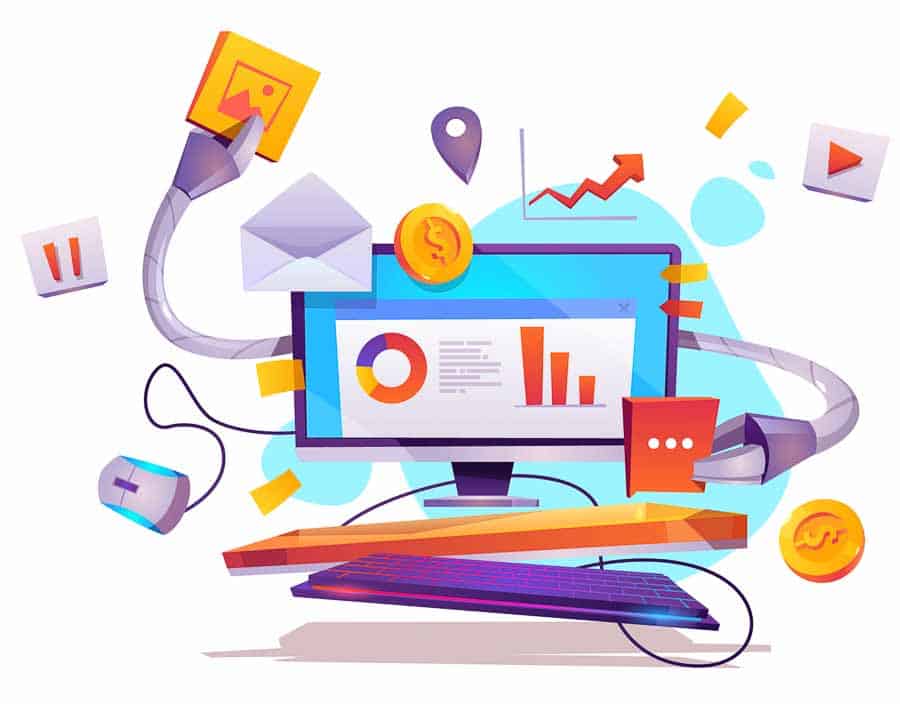
HubSpot is one of the powerful AI marketing platforms with lots of features. HubSpot Marketing Automation allows you to have all your data and growth activity in one place because all its features integrate with HubSpot’s CRM. Its full growth suite includes marketing, sales, and support software, giving you loads of automation in one tool.
There is a steep learning curve, but once mastered, there is no limit to the possibilities that save you time on repetitive tasks. Use HubSpot to set up autoresponders for email and to target specific users on various channels.
Keap is ranked as the #1 marketing automation tool for ease of use. Their CRM automation allows you to automate sales and marketing with its easy process.
Keap allows you to pool data from separate platforms for better insight into your business performance, and it is easy to set automatic lead generation. You can also set a repeatable sales process as leads move from one sale process to the next.
Whether you are a small startup or have a growing business, Keap is one of the best AI marketing tools for small and mid-size businesses.
Moosend is an AI marketing platform that caters to various industries, including eCommerce and SaaS. Moosend uses advanced website tracking and triggers, allowing you to send email campaigns to contacts interested in specific products or services.
Customer data allows you to create recommendation campaigns based on product views. You can use the detailed reports from the data collected from each campaign’s progress and user activity to make smarter decisions.
Zimplify allows you to build more innovative marketing campaigns with better leads and smarter automation. Businesses, marketers, and marketing agencies use the various online tools arranged in toolkits. These have a range of features that help you automate your existing manual process and provide your growing business with scalability.
All the features are fast to implement and will automate prospecting, demand generation, and lead nurturing. Zimplify’s marketing automation software also incorporates a sales automation toolkit, a CRM toolkit for managing contacts, and easy reporting and analytics tools.
There is more to marketing automation tools than just email. With ManyChat, you can automate some repetitive conversations on Facebook Messenger and SMS with a chatbot.
You can build a bot in minutes with ManyChat’s templates and easy-to-use interface that has drag-and-drop capabilities. Also, user information can be synced to your other tools, including CMR.
Omnisend is the omnichannel marketing automation software that is ideal for eCommerce. Pre-built templates allow you to get started quickly, and the tool has powerful automation workflows. The user-friendly WYSIWYG visual builder and templates are easy to use, allowing you to create workflows, popups, landing pages, and emails.
Several channels within the same automation workflow can be added. These also include email, SMS, Facebook Messenger, and push notifications.
This is the ideal tool for medium to larger-sized merchants because of its outstanding management features.
SendinBlue has built a powerful AI marketing platform with advanced features. These include reporting and lead scoring.
SendinBlue free plan impressively includes basic marketing automation functionality, phone support, and up to 300 emails. SendinBlue also allows you to runs SMS campaigns.
Ontraport is one of the versatile marketing automation tools for small and big businesses, and its features are scalable for those growing a small business. Their features include email marketing, reporting, landing paged, and eCommerce.
Ontraport focuses on reporting and insights with a clear look at the performance of your campaigns.
Pardot is a cloud marketing automation software solution that requires technical resources and mainly serves bigger enterprises. The feature-rich platform allows automated communication with existing contacts. It will enable CRM integration to email marketing, lead nurturing, lead scoring, and ROI reporting.
All interactions can be tracked on your website, and you can build predictive lead scoring by setting parameters. Marketing efficiency is improved.
Pardot lacks lead generation functionality and is not that affordable for smaller businesses.
Lastly, you will need an efficient platform that allows you to manage multiple networks to cross-promote your content efficiently. Social Pilot is a cloud-based software specifically designed for this.
Social Pilot offers calendar management, branding, scheduling, client management, and reporting functionalities within a suite.
This is how you can manage a whole week or social media content in just a few hours or less.
Conclusion
AI marketing automation uses your customer data’s central hub to improve your marketing, sales, and customer service.
Whether you have an existing business or a startup, several AI-powered marketing options are available to you. These allow you to choose the solution that lets your customers see the same brand identity across all platforms, offers them a seamless customer experience, and increases your ROI.
Now it’s your turn.
Will you use AI marketing automation for your business?
Leave a comment below with your answer.
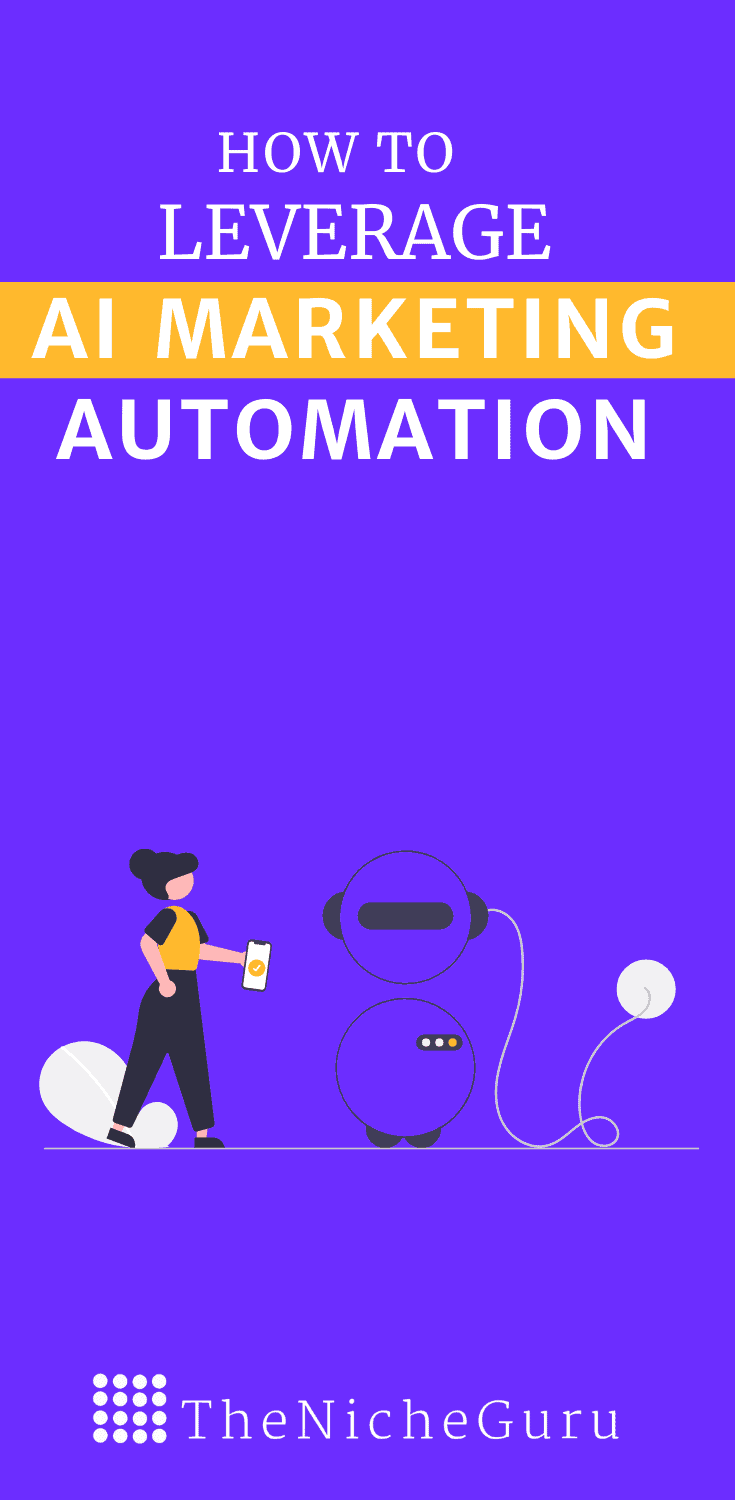
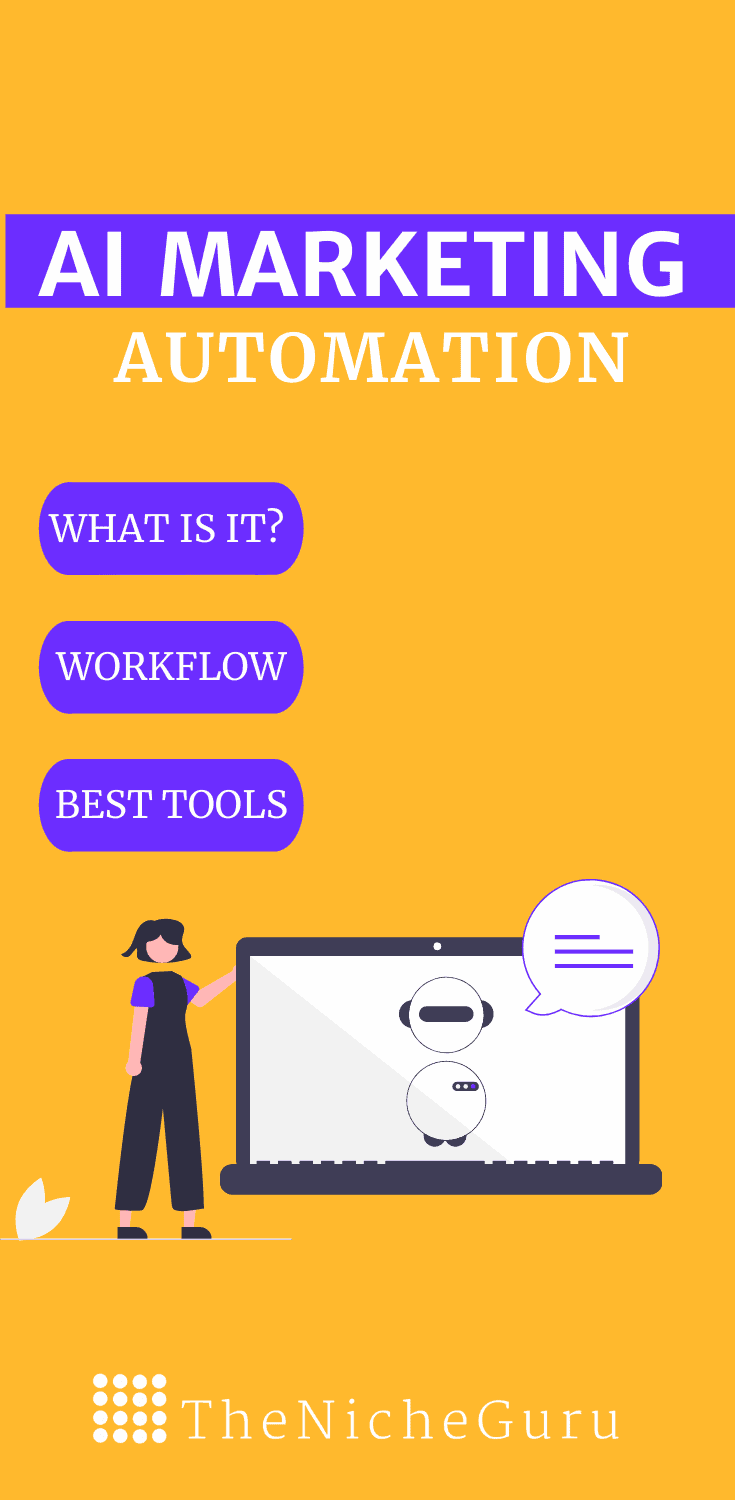
RELATED CONTENT
How to Build a Media Plan: A Step-by-Step Guide [Free Templates]
If you are a marketing professional, small business owner, or startup founder, it’s important to…
AI for Business: Key Benefits and How to Get Started
Artificial Intelligence (AI) technology is rapidly changing the business landscape. Its ability to automate processes,…
How to Create Ads with AI: Boost Your Marketing Efforts Today!
Creating ads with AI has never been easier. By leveraging AI tools, you can generate…
Lights, Camera, Conversion: How Photography Can Skyrocket Your Marketing ROI
Photo and video content are what drive contemporary marketing methods. With consumers demanding visual content…
